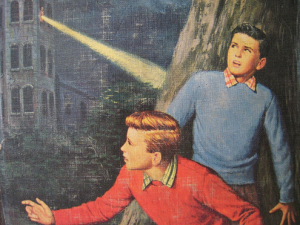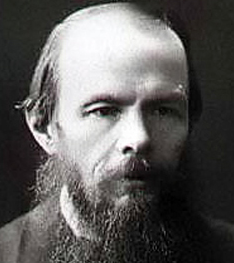People often ask me why I choose to write crime fiction and I say it’s because it encompasses all the big human emotions – love, hate, greed, revenge, fear — as well as the basic moral questions of good and evil, and that’s more than enough for me.
When people say, “I don’t read crime fiction at all,” as if they would not deign to waste their time or intelligence on something so trivial and clearly beneath them (it’s interesting to note that they have no problem saying this to me, a crime fiction writer), I say, “So, you’ve never read Crime & Punishment or An American Tragedy or Lolita or Poe or Chandler or Hammett or contemporary novels like Donna Tartt’s The Secret History or Richard Ford’s Canada or almost anything by Joyce Carol Oates, the “literary” list of crime fiction novels goes on and on. Frankly, I’m hard pressed to think of a novel without some sort of crime or human transgression.
Still, other people, who do read crime fiction, are ashamed to admit it or feel the need to categorize or excuse it as a guilty pleasure. I’ll never forget a well known poet bringing me a copy of Dennis Lehane’s “Sacred” (a fantastic and underrated Lehane novel) while I was in residence at the prestigious arts colony, Yaddo. Delivered in a brown paper bag—as though he was embarrassed to be seen with it (and he was)—the book eventually made the rounds at Yaddo and everyone—from the highest of literary writers to composers and painters and choreographers—loved it. This was followed by the equaling compelling “Killing Floor,” by Lee Child. Those two novels sparked several Yaddo dinner discussions about plotting and storytelling and yet, the prejudice continues.
I too, have been guilty of such categorizations and snobbery (and still am; I don’t read romance novels though I’m sure a romance writer could make an equally compelling case for books like “The French Lieutenant’s Woman”— personal favorite of mine—as not only a brilliant post-modern novel but a highly romantic one).

As a boy I read Edgar Allen Poe, the Hardy Boys, comic books and classics like “The Last of the Mohicans,” “Treasure Island” and “Robinson Crusoe,” which I read over and over. In my twenties and thirties I’d read a “real” book (a literary novel), followed by a mystery or thriller. It wasn’t long before I realized that some of the latter were better than the former and that both succeeded or failed on the same criteria: character, plot, prose, though the order of that criteria differed by genre—the literary books seemingly concerned more with prose; genre books leaning more heavily on plot.
But aren’t they all just trying to tell a story? Well, maybe, and maybe not. I know several literary writers who would say no, and to them I say, Well, I’ll get to your experiments in language right after I take my medicine. That’s not to say that I’m against good prose. It’s why I read people like James Salter, whose prose is so dazzlingly beautiful it can carry me for pages and stay in my mind for months. But Salter also happens to evoke landscape and sex so well that I feel as if I have driven through the French countryside with him and made love to his women.
Yes, it’s true, there are many badly written mystery novels. But there are an equal number of badly written literary novels (I recently tossed a much-lauded one into the trash after trying—for days—to get past the flowery, unreadable prose. And my wife, one of the great literary readers of the Western world, abandoned the same novel after 50 pages saying she still had no idea what the book was about and no longer cared). I am not launching an attack on literary writers. I read many of them: Philip Roth (I’ve read every novel and I’m sad to think he will write no more); J.M. Coetzee, whose novel, “Disgrace” is, I think, one of the great novels of our time; Damon Galgut, another South African, whose novel “In a Strange Room,” is as beautiful as it is haunting and mysterious; Michael Ondaatje, Joyce Carol Oates, Nabokov, another list that goes on and on—all great literary writers who can tell a story and more, and from whom I have learned plenty and continue to learn.
I sometimes think we keep this classification—crime versus literary fiction—so that everyone can feel safe in their own little ghetto populated by like-minded people, though clearly that is a fallacy as we know there are as many sub-divisions among literary writers as there are among crime fiction writers (mystery, thriller, hard boiled, cozy), and surely there is jealousy and dissention in all camps as in every other field—though I see less of it in the crime fiction world (Lee Child’s Introduction for the forthcoming serial novel I edited, “Inherit the Dead,” addresses just this fact: camaraderie among crime writers. Is it because they are ghettoized?).
Personally, I have never liked strict divisions and labels and try not to make distinctions between the kinds of books I read, between nonfiction and fiction or biography and memoir. To me, reading is reading. It’s the same argument I made about art when I switched from abstraction to representation: painting is painting, no matter what it does or does not depict. A painting still breaks down into brushstrokes of color in the same way that a book break down into sentences and words.
When SJ Rozan and I put together our anthology, “The Dark End of the Street,” that was our aim—to break down the barriers by combining literary writers like Francine Prose and Janice YK Lee with crime fiction writers like Michael Connelly and Laura Lippman, to name just a few, and we think we did. At least a little.

Maybe it’s time we stopped categorizing or creating hierarchies—saying, this is better than that. Difficult, I know, for me as well; we live in a hierarchal culture. But for now I’d like to remind those readers who distain crime fiction that Nabokov’s “Lolita” is a jailhouse memoir, Dreiser’s “An American Tragedy” and Dostoyevsky’s “Crime and Punishment” deal with murder and that the best crime fiction writers are as concerned with good writing as they are with keeping you guessing, and that’s not easy!

